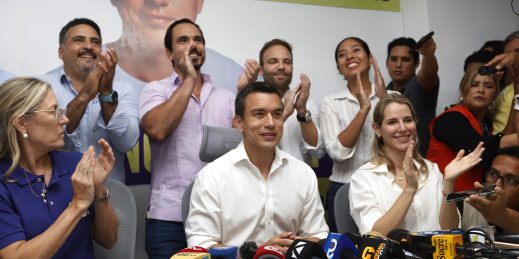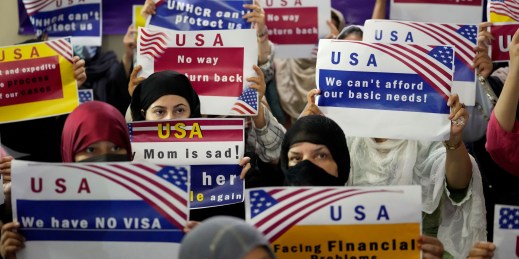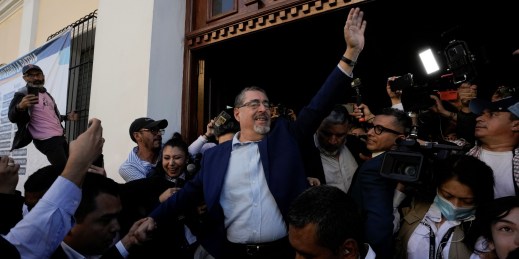Column Archive
Free Newsletter
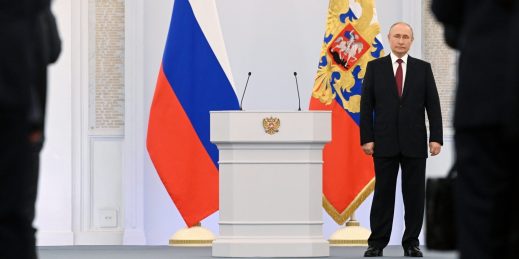
After Yevgeny Prigozhin’s death, Russia’s long-term trajectory under Putin looks increasingly dire. The enormous complexity of Russia’s challenges is more likely to paralyze Russia’s elites in ways that will enable Putin to delay a reckoning until long after the damage he has done can no longer be fixed.
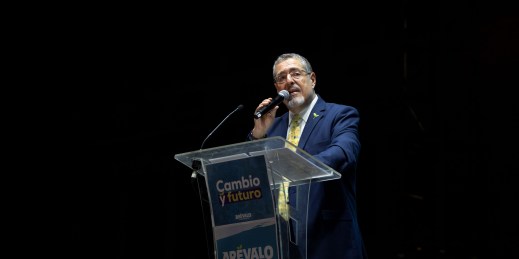
The probability that Bernardo Arevalo will succeed as Guatemala’s president is slim, but so were the odds of him making it this far to become president-elect. In spite of all the reasons for pessimism, this is a success story that the entire hemisphere should embrace. Arevalo can succeed if the world pays attention.
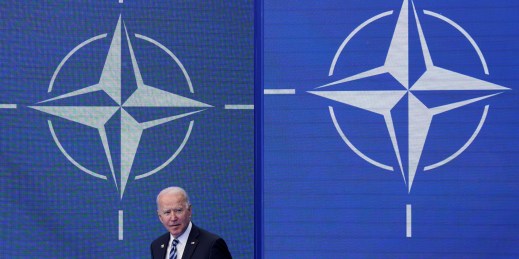
The Biden administration seems determined to ensure that its foreign policy achievements not be undone by any potential Republican successors. The administration might just pull off that goal, largely because the foundation of Biden’s foreign policy is, in turn, built on the foundation of his Republican predecessor: Donald Trump.
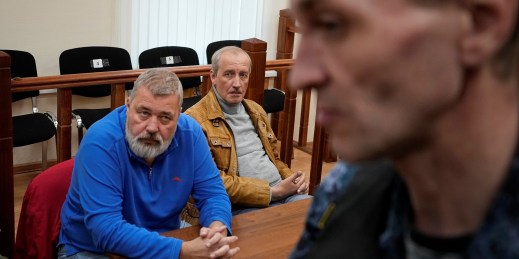
Since the invasion of Ukraine, independent Russian journalists who refused to follow the Kremlin’s narrow rules have had to flee the country, endure persecution by Russian intelligence and suffer the suspicion of those in their new homes. Now the attempted assassination of one of their own has raised their fears to new heights.
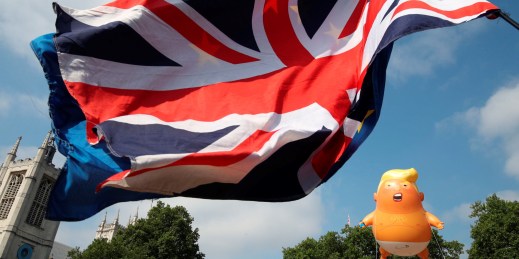
Since Donald Trump’s shock victory in the 2016 U.S. presidential election many commentators have compared his rise with the victory of the anti-EU Leave campaign in the referendum over the U.K.’s EU membership the same year. Yet too often such comparisons have ignored huge differences between these political earthquakes.
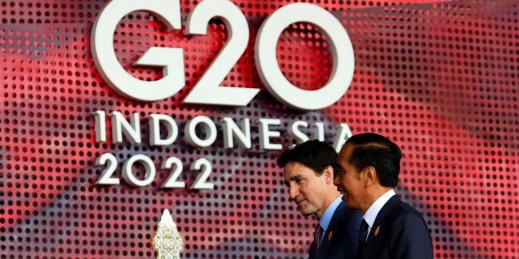
World leaders face a slew of multilateral summits over the coming month, including the BRICS meeting in South Africa, the G20 in India, and the UN General Assembly in New York. This rare convergence of top-tier international gatherings is a symptom of the increasing importance of high-level summitry in international diplomacy.

Last week, President Joe Biden signed an executive order restricting U.S. companies’ ability to invest in a range of cutting-edge technology sectors in China. Biden has also maintained tariffs imposed on China by former President Donald Trump. That raises a fundamental question: Why is the U.S. imposing trade restrictions on China?
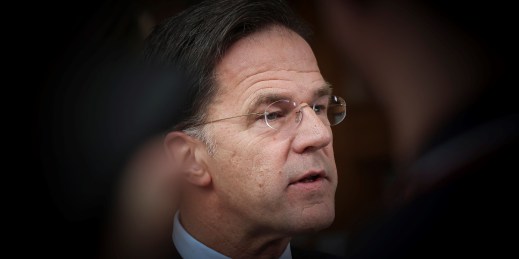
When Dutch Prime Minister Mark Rutte announced in July that he was stepping down and leaving politics, he unleashed a chain reaction of resignations and political realignments in the Netherlands. The transition to the post-Rutte era has upended the national political landscape, opening the way for a new generation of leaders.
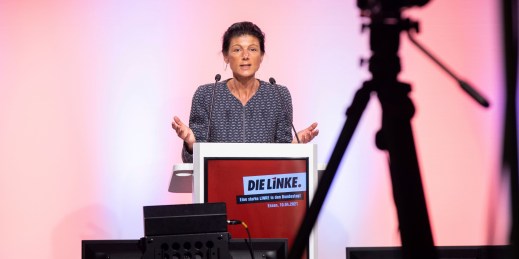
The surge of support for the far-right Alternative for Germany party to over 20 percent in recent polls has led to growing concern over the future of democracy in Germany. Yet even as momentum builds for the AfD, a far-left movement is more quietly preparing their own campaigns to dismantle the country’s political status quo.
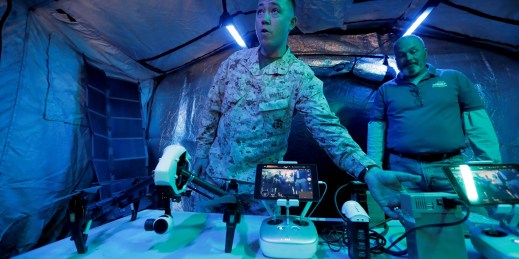
Against the backdrop of the Maui wildfires, U.S. President Joe Biden is facing renewed calls to declare a climate emergency but has been hedging on whether to do so for political reasons. But Biden is overlooking an untapped source of political capital that would ease the declaration of a climate emergency: the U.S. military.
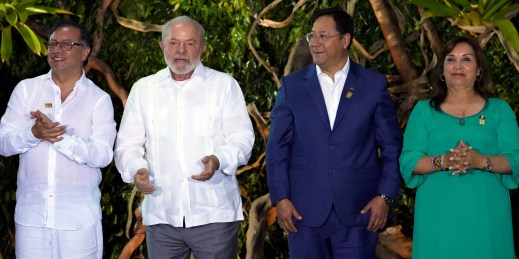
Reducing deforestation in the Amazon is good policy, but as last week’s summit bringing together leaders of the Amazonian countries demonstrated, it can make for difficult politics. Instead of arriving at regional solutions, the summit exposed divisions in South America on a topic that is high on the global environmental agenda.
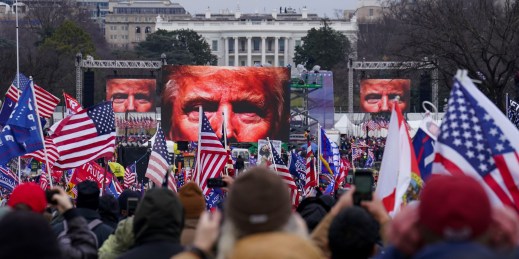
At the time of the assault on the U.S. Capitol on Jan. 6, 2021, many observers disagreed with labeling it a coup attempt. Political violence, for sure. Insurrection, perhaps. But a coup? In the United States? In fact, the reluctance to label what happened that day a coup flies in the face of what political scientists know about coups.
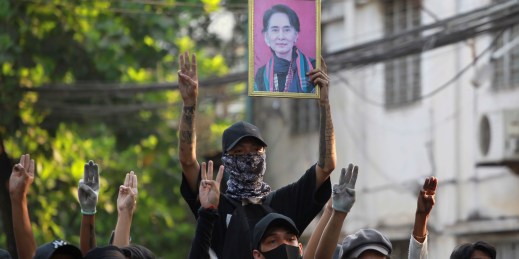
When Myanmar’s ruling military announced last week that it was issuing a partial pardon for opposition leader Aung San Suu Kyi, it seemed a sign that the regime might be preparing to loosen its grip and perhaps even compromise with the opposition. That optimistic interpretation, however, is being rejected by many Myanmar observers.
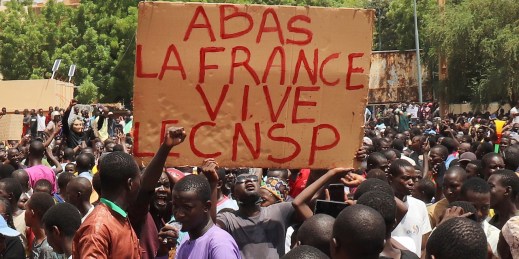
In the past two weeks, the coup in Niger has snowballed into a confrontation pitting the civilian-led states of ECOWAS against military juntas in West Africa. But the standoff is a symptom of broader dysfunctions in the global system that underscore the need for the EU and its members to reassess their approaches to foreign policy.

